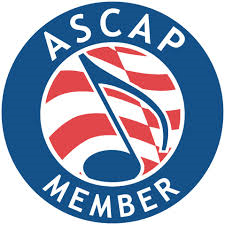Why is the ASCAP asking us to Pay for Music in our Gyms?
Has ASCAP (American Society of Composers, Authors and Publishers) contacted you to license the music in your cheer gym? Unfortunately, ASCAP is targeting cheerleading gyms across the United States to make gym owners aware of the copyright laws regarding the music that may be played in their facility.
Out of nowhere gyms around the country are getting calls from the American Society of Composers, Authors and Publishers (ASCAP) and are being told that they must purchase a license to play music in their gym. I called the ASCAP to get clarity on what this all means to the cheer industry; cheer gyms in particular. I was told that there are two types of royalties that must be paid to artists, musicians and writers as to not infringe on the U.S. copyright law. The royalties are the mechanical royalty and the performance royalty. The mechanical royalty is paid at the time we purchase music and the performance royalty is paid to play music in a public setting.
What is ASCAP and BMI?
The ASCAP is not the only game in town. The BMI (Broadcast Music, Inc.) and SESAC are also organizations within the U.S. which represent the rights of songwriters and publishers and their rights to be compensated for music played in public. The main difference between these three groups is the genre and music libraries. The SESAC has the smallest library of music from the gospel and Christian genre, while the ASCAP and BMI have almost equal shares of different artists in all genres.
What is a Public Performance?
A "public performance" of music is defined in the U.S. copyright law to include any music played on a sound system located in a space where customer can listen to the music.
According to the Copyright Law; To perform or display a work “publicly” means—(1) to perform or display it at a place open to the public or at any place where a substantial number of persons outside of a normal circle of a family and its social acquaintances is gathered; or
(2) to transmit or otherwise communicate a performance or display of the work to a place specified by clause (1) or to the public, by means of any device or process, whether the members of the public capable of receiving the performance or display receive it in the same place or in separate places and at the same time or at different times.
Songwriters, composers, and music publishers have the exclusive right to play their music publicly and to authorize others to do so under the copyright law. This is known as the "Performing Right". This right was designed to enable and encourage music creators to continue to create music.
When you see the words "All Rights Reserved" on music that was purchased, you know that playing that music before a public audience is prohibited. The same restrictions apply to music that is purchased, broadcast, or live musicians that are hired to play in a public setting. Every business or organization must receive permission from the copyright owners of the music they are playing before playing it publicly. It is the business owner's responsibility to get licensed.
Are there any exemptions?
There are a few limited exceptions, (called "exemptions") to the rule. Permission is not required for music played or sung as part of a worship service unless that service is transmitted beyond where it takes place (for example, a radio or television broadcast). Performances as part of face to face teaching activity at non-profit educational institutions are also exempt.
Public performances of radio and TV are specifically addressed in Title 17, Section 110(5)(B) of the U.S. copyright law which states that any food service or drinking establishment that is 3750 square feet or larger, or any other establishment, other than a food service or drinking establishment, that is 2000 square feet or larger, must secure public performance rights for TVs or radios if any of the following conditions apply:
• For TV, if the business is using:
- more than four TVs; or
- more than one TV in any one room; or
- if any of the TVs used has a diagonal screen size greater than 55 inches; or
- if any audio portion of the audiovisual performance is communicated by means of more than six loudspeakers, or four loudspeakers in any one room or adjoining outdoor space; or
- if there is any cover charge.
• For radio, if the business is using
- more than six loudspeakers; or
- more than four loudspeakers in any one room or adjoining outdoor space; or
- if there is any cover charge; or
- music on hold.
I contacted ASCAP three times to get clarity on music licensing and never received a call back. My next call to BMI was more successful and I actually spoke to a licensing specialist where I received quite a bit of information. They informed me of two areas cheerleading gyms might be licensed under. Since Gyms and Dance Studios are considered public places, as they are instructional venues that solicit members to join and gather in a facility, I was told licensing was required. BMI directed me to the license contracts for Dance Classes and Fitness Clubs. They felt these contracts would fit the cheerleading industry best.
The Fitness Club License actually worked out to be less money at BMI than the Dance Class License. BMI was willing to go either way with the license contract as they did not have a contract specifically for cheerleading gyms. They made the recommendation to view the artists and songs on the BMI website library to be sure that the music played in the gym was covered in their library. They also recommended that seeking a license with both the ASCAP and BMI was not a bad idea as it would cover every artist licensed as well as the radio, internet streaming music, and cd's.
But what about Internet Radio?
We all love to stream free music on Pandora, IHeart Radio and any other free internet music source. After years of fighting over royalty fees with the ASCAP and BMI, Pandora finally agreed listeners only 40 hours of free music a month to its users. To date, copyright law for internet streaming music has not been challenged in court and therefore would not be a recommended source for public streaming.
An alternative to free Internet radio is satellite radio. In contrast to an Internet radio service such as Pandora, satellite radio subscription for businesses is covered by the home-style exemption. SiriusXM for Business is a paid subscription service which handles copyright royalties for businesses. Through such a subscription, the business would avoid having to pay licensing fees to the different performing rights organizations. The business may choose to listen through an internet reception or through a satellite receiver. It should be noted, however, that the licensing fees for most performing rights organizations amount to an annual sum not substantially different than that charged by satellite radio. Depending on the negotiated price, a company may be indifferent between paying to one performing rights organization and subscribing to satellite radio.
What does a Small Business do?
If you can operate your business within the exemptions and play only broadcasted public radio, it is possible that you may be able to do nothing. This is probably not the realist scenario because of the type of instruction going on in the gym. Once the BMI or ASCAP find your business and begin to contact you, it is likely they will continue to pursue your business for licensing. The BMI told me they do not actively pursue businesses, but we are all well aware that the ASCAP is pursuing cheerleading gyms.
What happens if I use ASCAP or BMI music without permission?
If you choose to use another’s property without permission, a court can assess damages, a minimum of $750 for each song "infringed," and can require you to pay attorney’s fees and court costs. As an ASCAP or BMI customer, you are entitled to use any of the music they represent.
I am not a copyright lawyer, but really needed to understand this for myself. I thought it was a scam at first, but after much research I found countless references to the licensing issues that small businesses face. Since each company has its own library, the best course of action would be to get licensed with both agencies to be fully covered. It may be a small price to pay and one less headache as a small business owner.
Searching royalty free music was not in the scope of my research, but I will be looking into this more to determine if it is possible to purchase royalty free music that you buy once and use it forever.
Quote from Gabriela Barnard: "Nothing in this world is free… Just remember everything comes with a price."
For more information, See the US Copyright Law at http://www.copyright.gov/title17/
http://www.heartofcheer.com/news/ascap-asking-us-pay-music-gym/http://www.heartofcheer.com/wp-content/uploads/2014/07/ASCAP.jpghttp://www.heartofcheer.com/wp-content/uploads/2014/07/ASCAP-150x150.jpgBlogGymsIndustryNewsascap,bmi,cheerleading gyms,cheerleading music,copyright





